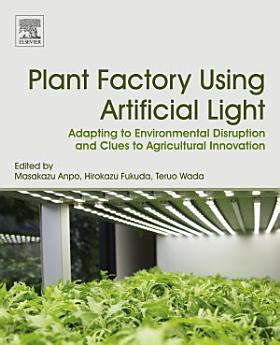Plant Factory Using Artificial Light: Adapting to Environmental Disruption and Clues to Agricultural Innovation
About this ebook
About the author
Masakazu Anpo is a Professor Emeritus of Osaka Prefecture University (ex-Vice President & Executive Director) since 2015 (Osaka, Japan) and a Special Honored Professor & International Advisor at Fuzhou University (Fuzhou, China) since 2015. He is a pioneer in the research of photochemical reactions on solid surfaces, the design of highly efficient visible-light-responsive TiO2 photocatalysts, and single-site transition metal oxide photocatalysts constructed within the framework of zeolites and mesoporous materials for the issues of environment and energy. He is the editor-in-chief of the international journal Res. Chem. Intermed. (Springer), and has published many books such as “Photochemistry on Solid Surfaces (1989, Elsevier), “Environmentally Bengin Photocatalysis (2014, Springer) and reviews such as Chem. Rev., 114 (2014), Adv. Inorg. Chem., 72 (2018). He is a member of Academia Europaea and Science Council of Japan.
Dr. Hirokazu Fukuda is a professor at Osaka Prefecture University in Course of Bio-Production Engineering Systems, Department of Mechanical Engineering in Graduate School of Engineering. He is also affiliated with the Research and Development Center for Plant Factories, Osaka Prefecture University. His research has focused on the development of plant diagnosis systems, using modeling and bioinformatics to find a way to increase productivity in plant factories. His unique prediction model and bioinformatics for biological clocks have been installed in commercial plant factories. Currently, he is studying instability in plant production caused by the nonlinearity of plant environmental responses.
Dr. Teruo Wada is an associate professor at Osaka Prefecture University in Course in Plant Production Science, Division of Applied Life Sciences in Graduate School of Life and Environmental Sciences. He is also affiliated with the Research and Development Center for Plant Factories, Osaka Prefecture University. His research has focused on year-round production of high-value vegetables through hydroponic systems in greenhouses and plant factories. More specifically, he studies technologies to control mineral composition in nutrient solutions and optimize growth environments for vegetables. Recently, he is working on aquaponics applied to lettuce and loach, and postharvest technologies for vegetables and fruits using hydrogen water.






